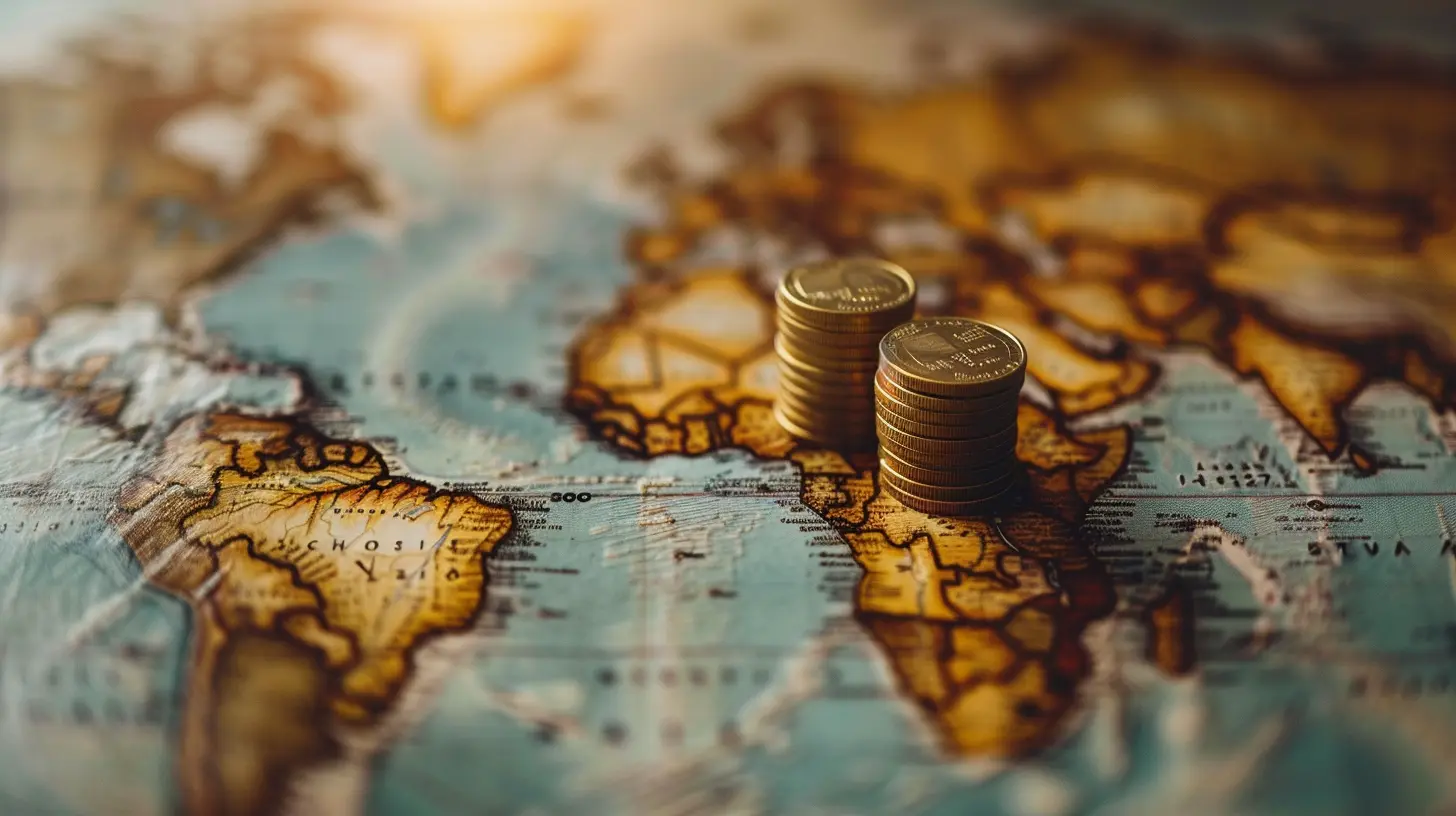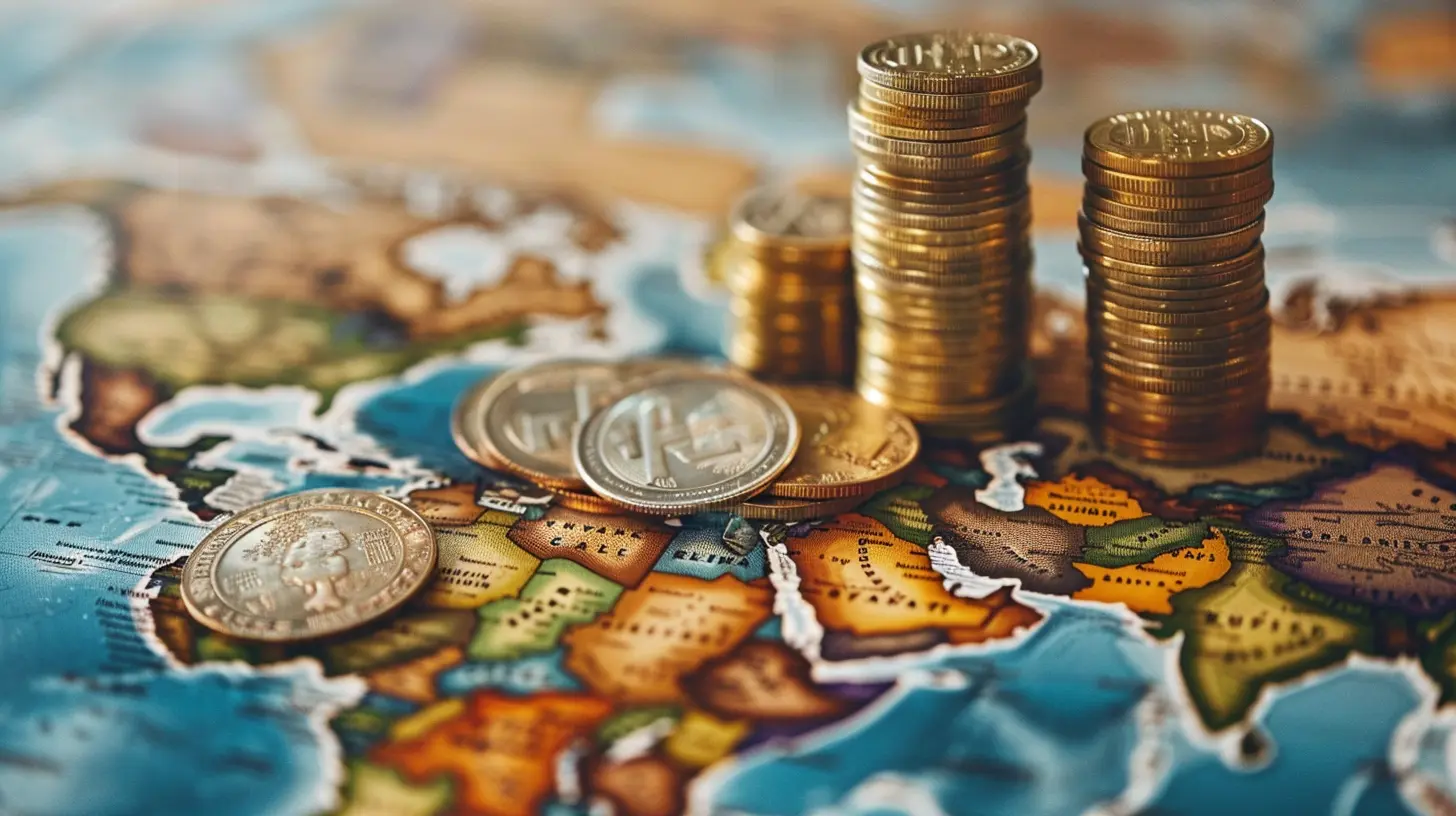How to Choose the Right Jurisdiction for Offshore Banking
25 June 2025
When it comes to offshore banking, picking the right jurisdiction is like choosing the best home for your money. You want a place that's safe, private, and financially beneficial. But with so many options available, how do you decide where to park your wealth?
This guide will walk you through everything you need to know about selecting the right offshore banking jurisdiction. We’ll look at key factors, best countries, and what you should consider before making your decision. Let’s dive in!

What is Offshore Banking?
Offshore banking simply means opening a bank account in a foreign country rather than your home country. People choose offshore banking for many reasons, including:- Asset protection – Keeping your money safe from economic instability or lawsuits.
- Tax benefits – Some jurisdictions offer tax-friendly policies that help you save money.
- Privacy – Certain countries have strict banking secrecy laws.
- Diversification – Holding assets in different regions reduces financial risks.
But not all offshore banking jurisdictions are created equal. Some are more secure, financially stable, or tax-efficient than others. That’s why choosing the right one is critical. 
Key Factors to Consider When Choosing an Offshore Banking Jurisdiction
Picking the right offshore banking location requires careful thought. Here are the most important factors to consider:1. Financial Stability
Would you put your money in a bank that could collapse tomorrow? Probably not. That’s why financial stability should be at the top of your list.Look for jurisdictions with:
- A strong economy
- Low national debt
- A well-regulated banking sector
Countries like Switzerland, Liechtenstein, and Singapore have rock-solid financial systems that ensure the safety of your deposits.
2. Banking Privacy and Confidentiality
Some offshore banking jurisdictions offer excellent privacy laws, while others have loosened their policies due to international pressure.If banking secrecy is important to you, look for countries that still uphold strong confidentiality protections. Switzerland, for example, is known for its strict privacy policies, though some transparency has been introduced in recent years.
Always check if the country participates in financial information-sharing agreements like the Common Reporting Standard (CRS), which could impact your privacy.
3. Tax Advantages
Tax efficiency is one of the biggest reasons people choose offshore banking. But here’s the thing – not all jurisdictions offer the same benefits.Some places, like the Cayman Islands and Panama, have zero or very low taxes on foreign income. Others, like Singapore and Hong Kong, have competitive tax rates but still impose some levies.
It’s essential to consider if the jurisdiction:
- Taxes foreign income
- Has double taxation agreements
- Provides legal ways to reduce your tax burdens
Remember, tax laws are constantly changing, so always seek professional advice before making a move.
4. Ease of Account Opening
Let’s be real – offshore banking isn’t as simple as opening an account at your local bank. Some jurisdictions have extensive paperwork and strict requirements, while others offer a hassle-free experience.Consider the following:
- Minimum deposit requirements – Some banks require a significant initial deposit.
- Business vs. personal account – Business accounts usually face stricter scrutiny.
- Residency requirements – Some banks only allow residents to open accounts, while others welcome non-residents.
For easier account opening, look at jurisdictions like Belize, the Cayman Islands, and Saint Kitts and Nevis, which have relatively simple procedures.
5. Political and Legal Environment
A country’s political stability can make or break your offshore banking experience. You don’t want to deposit money in a country that’s riddled with corruption, has unpredictable regulations, or could freeze foreign assets at any moment.To ensure a safe banking environment, ask yourself:
- Is the government stable?
- How strict are anti-money laundering laws?
- Does the jurisdiction comply with global banking regulations?
Countries like Switzerland and Singapore have strong legal systems that protect depositors, making them excellent choices.
6. Access to Currency and Banking Services
Not all offshore banks offer the same services. Some specialize in wealth management, while others focus on basic banking. Consider what’s important to you:- Multi-currency accounts – Useful if you transact internationally.
- Investment options – Some banks offer higher interest rates or investment portfolios.
- Online banking and customer support – Make sure the bank provides convenient online access.
Jurisdictions like Hong Kong and the Isle of Man cater to international banking needs with multi-currency accounts and flexible financial services. 
Best Offshore Banking Jurisdictions in 2024
Now that you know what to look for, let’s dive into some of the best offshore banking jurisdictions available today.1. Switzerland – The Gold Standard
- Why? Strong financial regulations, stability, and banking secrecy.- Best for: Wealth preservation, private banking.
- Downside: Stricter compliance rules since global tax transparency laws were introduced.
2. Singapore – Asia’s Financial Powerhouse
- Why? Strong banking system, economic stability, and business-friendly policies.- Best for: Business owners, investors, multi-currency accounts.
- Downside: Banking regulations can be strict for foreign clients.
3. Cayman Islands – A Tax Haven Favorite
- Why? No direct taxes on income, capital gains, or corporate profits.- Best for: Tax efficiency, wealth management.
- Downside: Scrutiny from international regulators.
4. Belize – Easy and Affordable Offshore Banking
- Why? Simple account opening process, privacy-friendly laws.- Best for: Small businesses, individuals looking for a hassle-free offshore account.
- Downside: Perceived as a tax haven, which may raise red flags with regulators.
5. Hong Kong – A Business and Investment Hub
- Why? Competitive taxes, strong economy, excellent banking services.- Best for: Business owners, global investors.
- Downside: Recent political instability raises some concerns.
6. Dubai (UAE) – Emerging Offshore Banking Giant
- Why? Business-friendly regulations, no personal income tax.- Best for: Wealth protection, international business owners.
- Downside: Strict compliance rules for account opening.

Final Thoughts: Choosing the Best Offshore Banking Jurisdiction
Selecting the right offshore banking jurisdiction isn’t a decision to take lightly. You need to weigh multiple factors, from financial stability and privacy to tax benefits and ease of account opening.Ask yourself:
- What are my financial goals?
- Do I need strong banking secrecy?
- Am I looking for tax efficiency?
- Will I need multi-currency options?
Once you have clarity on these questions, research the best jurisdictions and consult legal and financial experts before making your move. Offshore banking isn’t about hiding money—it’s about protecting and growing your wealth the smart way.
all images in this post were generated using AI tools
Category:
Offshore AccountsAuthor:

Audrey Bellamy
Discussion
rate this article
2 comments
Zailyn West
Choosing the right jurisdiction for offshore banking requires careful consideration of regulatory frameworks, tax implications, and financial privacy protections.
November 16, 2025 at 5:29 AM

Audrey Bellamy
Absolutely! It's crucial to evaluate each jurisdiction's regulations, tax benefits, and privacy laws to make an informed decision on offshore banking.
Solaria Davis
Great insights! Choosing the right jurisdiction really makes a difference in offshore banking success.
June 28, 2025 at 3:28 AM

Audrey Bellamy
Thank you! I'm glad you found the insights helpful. Choosing the right jurisdiction is indeed crucial for maximizing offshore banking benefits.


